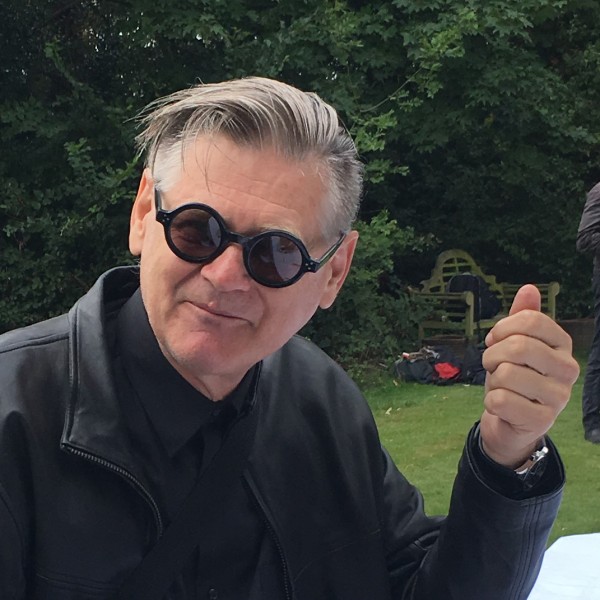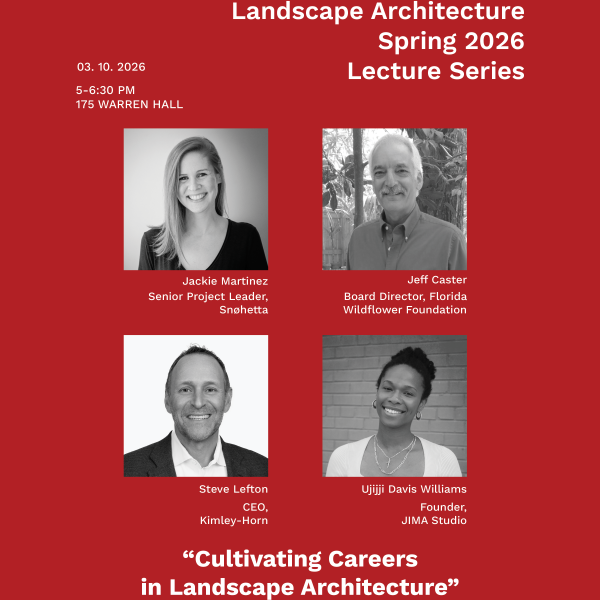Degree Programs
News & Events

Lecture
Join us in 175 Warren Hall for a lecture with Ken Smith, Principal of Ken Smith Workshop. This lecture is titled "Places Have Memory." This presentation sets out to present and discuss design practices and projects that challenge the basic...

Lecture
Join us in 175 Warren Hall for a panel discussion with Jackie Martinez, Jeff Caster, Steve Lefton, and Ujijji Davis Williams. This panel will be discussing cultivating careers in landscape architecture. Jackie Martinez is a landscape architect...
Report
News
We are thrilled to announce that Cornell Landscape Architecture has been named a finalist for the Ribas Piera International University Prize 2025, part of the 13th Barcelona International Landscape Biennial. The award ceremony will be held on...
News
The Einhorn Center is funding seven project teans from the latest round of Engaged Opportunity Grants.






























